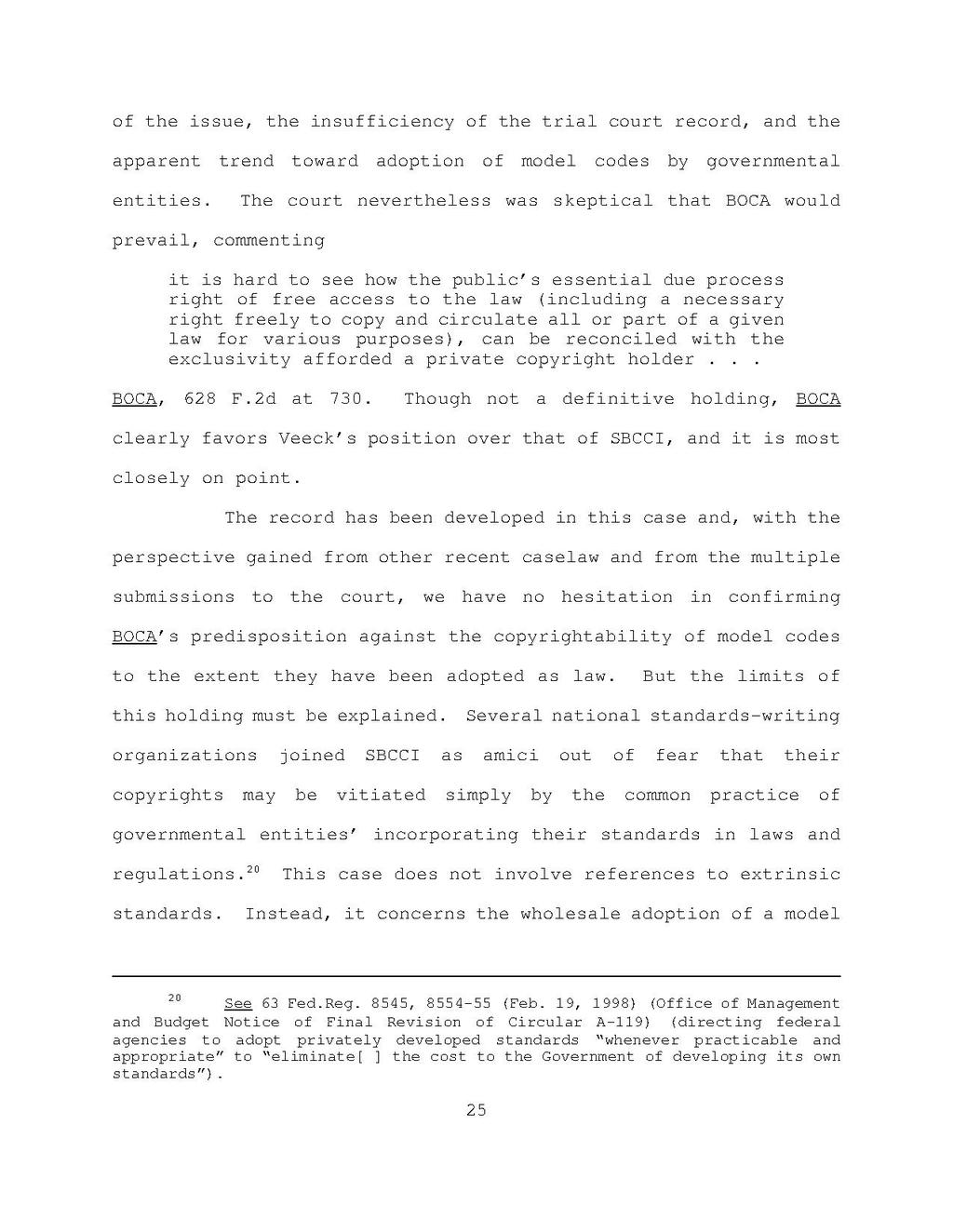of the issue, the insufficiency of the trial court record, and the apparent trend toward adoption of model codes by governmental entities. The court nevertheless was skeptical that BOCA would prevail, commenting
it is hard to see how the public's essential due process right of free access to the law (including a necessary right freely to copy and circulate all or part of a given law for various purposes), can be reconciled with the exclusivity afforded a private copyright holder . . .
BOCA, 628 F.2d at 730. Though not a definitive holding, BOCA clearly favors Veeck's position over that of SBCCI, and it is most closely on point.
The record has been developed in this case and, with the perspective gained from other recent caselaw and from the multiple submissions to the court, we have no hesitation in confirming BOCA 's predisposition against the copyrightability of model codes to the extent they have been adopted as law. But the limits of this holding must be explained. Several national standards-writing organizations copyrights may joined be SBCCI as amici by out the of fear that their of vitiated simply by the common practice of governmental entities' incorporating their standards in laws and regulations.[1] This case does not involve references to extrinsic standards. Instead, it concerns the wholesale adoption of a model
- ↑ See 63 Fed.Reg. 8545, 8554-55 (Feb. 19, 1998) (Office of Management and Budget Notice of Final Revision of Circular A-119) (directing federal agencies to adopt privately developed standards "whenever practicable and appropriate" to "eliminate[ ] the cost to the Government of developing its own standards").
25
